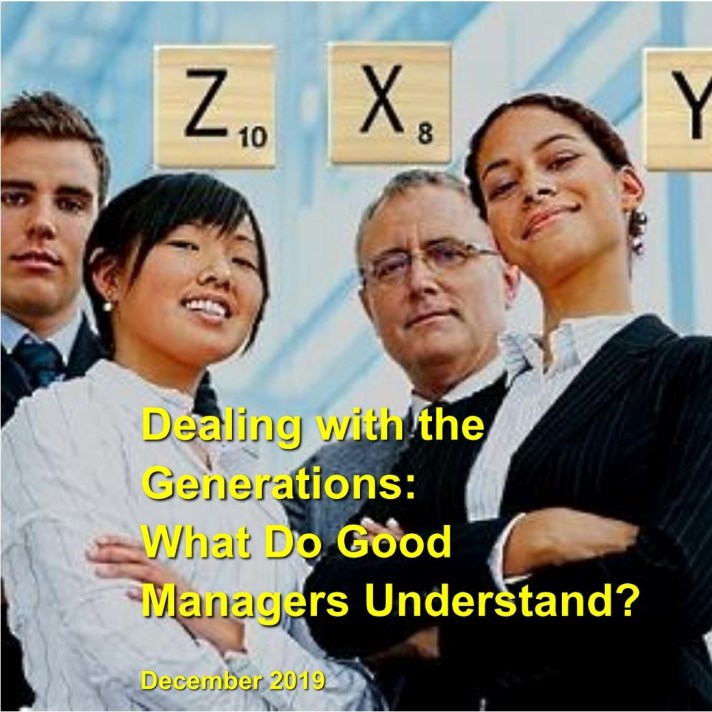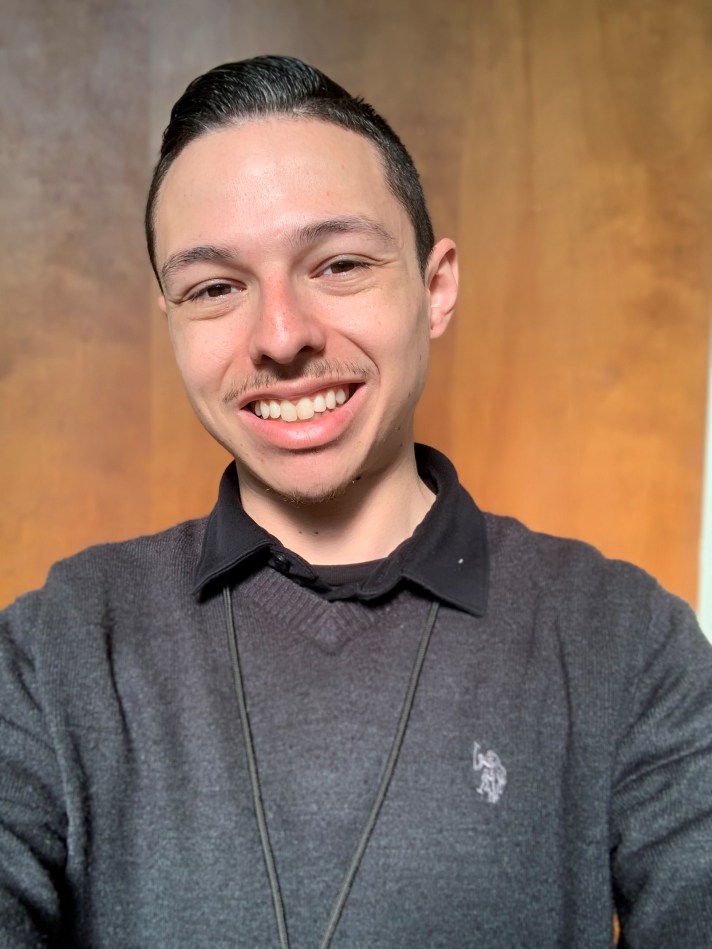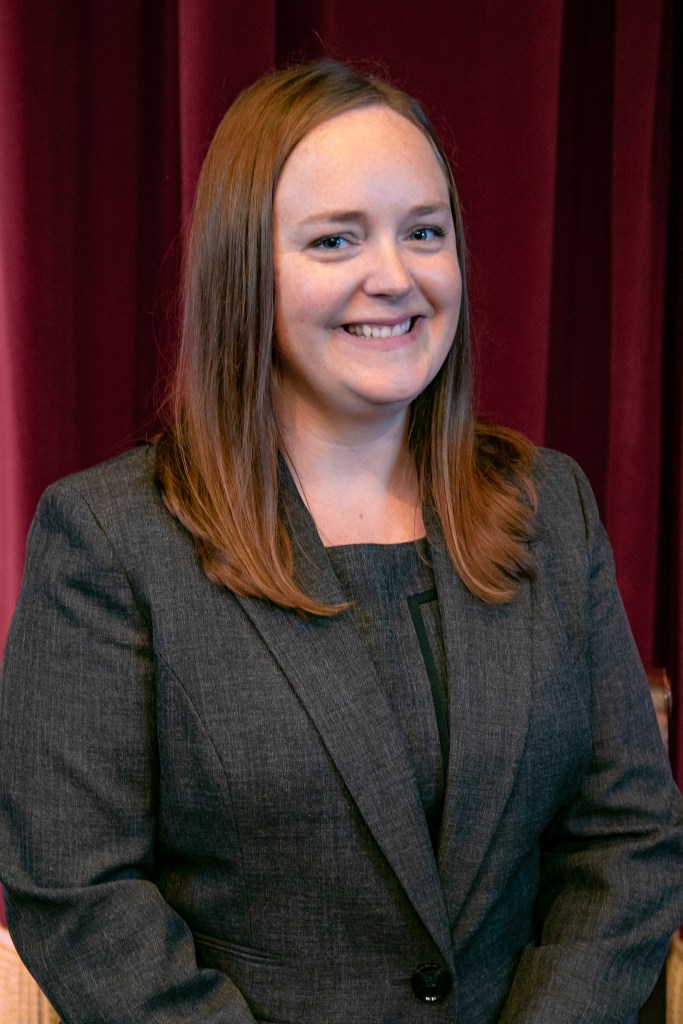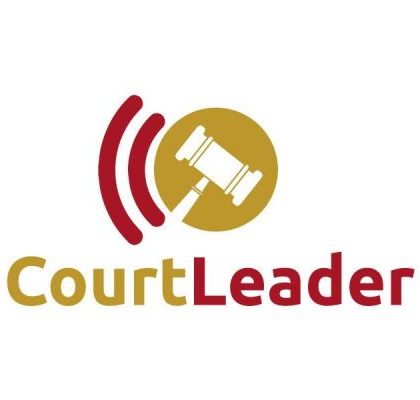Court Leader’s Advantage Podcast: December 2019 Episode

Managing the multigenerational workplace is more demanding today than ever before. Why has it become such a challenge? One reason is that we are living and working longer. Today, we can expect to live 18 years longer (79 years old) than if we were born in 1935. Second, technology is changing our lives and the rate of that change is increasing. Once, just being a 30-year veteran of an organization made you a valued expert. Today, we value the technological skills to master artificial intelligence, cybersecurity, and social media. Does assigning traits to the different generations help or hurt when managing the workplace? What insights do we have for today’s managers with up to four generations working side-by-side?
Zenell Brown, Alisa Shannon, Rene Armenta, and Kelly Hutton discuss what it means oversee a court with so many different age groups working together.
This is an absorbing podcast episode for listeners curious about generational differences, managing the generations, courts, and court administration.
Listen to the Episode
Leave a comment or question about the episode at clapodcast@nacmnet.org.
About the Guest Speakers

As a Court Administrator, Zenell Brown is a team builder, leader, and organizational strategist committed to excellence in public service. She currently serves as the Executive Court Administrator for the Third Circuit Court, the largest Michigan trial court and among the big 10 in the nation. The Third Circuit Court proudly points to its many successful strategic projects and high public satisfaction rating as evidence that its Court leadership is moving in the right direction.
Zenell has garnered respect for her ethical leadership and innovation. She has built her approach on three pillars: communication, leadership responsibility and accountability, and diversity and inclusion. She has shared her “Justice for All” leadership and organizational wisdom at local, state, and national level conferences for court managers and teams. She is a versatile presenter and brings an eclectic mix of tools to share, blending best practices and lessons learned conversations, and lectures with vision boarding exercises and coaching.
A self-professed lifelong learner, Zenell continues to add to her current credentials of Juris Doctor (Wayne State University Law School), Public Service Administration Graduate Certificate (Central Michigan University), Court Administration Certificate (Michigan State University), and Certified Diversity Professional (National Diversity Council-DiversityFirst).
She currently serves on Michigan State Bar’s Alternative Dispute Resolution Committee and the Diversity and Inclusion Advisory Committee, the Michigan Diversity and Inclusion Council Board, as an Associate Member on the National Association of Women Judges’ Face of Justice Committee, and many other professional and civic memberships.

Alisa Shannon has served as a civil servant for the past twenty plus years. She is the Deputy Court Administrator of the Third Judicial Circuit of Michigan – Criminal Division. In this role, Alisa oversees the management of the criminal case processing departments and works tirelessly to build strong relationships and to help administer criminal justice in a fair, professional, and efficient manner.
In addition to overseeing the operations of the Criminal Division, Alisa has led many court-wide leadership committees. As a trusted leader, she directed the state’s largest trial court through the Strategic Planning process. Much of her career success can be attributed to her ability to build relationships, create supportive environments, and advocate on behalf of others.
Alisa has earned a Master Certification in Business Leadership and Management, with a specific focus on Strategic Decision-making, Strategic Leadership, and Strategic Management from Michigan State University. She is a certified trainer in Restorative Practices and in the art of having Crucial Conversations. She served on several committees with the National Association of Pretrial Services Agencies, and most recently represents the court on the Diversity and Inclusion Advisory Board of the Michigan Diversity and Inclusion Council.

Rene Armenta was born and raised in Tucson, AZ. He graduated from Rincon High School and started his career with the courts in early February of 2019 at the Pima County Juvenile Courthouse, assisting both clients and court staff, directing them to their appointment, and providing assistance on court date information. Recently transitioning to the downtown Superior Courthouse as a Case Management Specialist assisting on the Family Law Bench, he assists in the efficiency of caseflow by processing court documents, ensuring court dates and times are correctly scheduled, assisting in scheduling Pro Tems and so much more.

Kelly Hutton has worked for the North Dakota Court System since January 2007 and is currently the Assistant Court Administrator for Unit 1 which is comprised of 13 counties and 11 judges. She has served on local committees and assisted in the implementation of many projects in North Dakota. Kelly currently works with the statewide Caseflow Management Committee, chairs the Digital Recording Workgroup, and the technology sub-group of the caseflow committee, which assisted in the creation of the judicial dashboard that is utilized across the state by judges and court administrators.
In 2015, Kelly completed the Court Management Program and in 2017 completed her ICM Fellowship through the National Center for State Courts (NCSC). Her fellowship paper entitled “Caseflow Management in North Dakota: From Measurement to Management” documented the recent changes in North Dakota rules and policies and discussed recommendations for the future of caseflow management in North Dakota.
Kelly holds a B.A. in Legal Studies from Hamline University, where she also had minors in Economics and Political Science. She is currently working on her Master’s in Public Administration at the University of North Dakota.
Do You Want to Know More?
Leading a Multigenerational Team
By Zenell Brown
State of the Global Workplace’s research shows that 85% of employees are disengaged. As there are four generations in the workforce, it is a challenge for leaders to ensure employee engagement. Here are some tips and strategies that can help leaders provide a fulfilling work experience for their multigenerational teams:
- Balance structure and freedom.
- Have multiple communication platforms: In person meeting, emails, phones, social media.
- Have a social media policy
- Engage employees early on.
- Provide experiential learning. Explain the process and why. “We’re old and we’ve always done it this way” is disrespectful. Younger Workers will have the benefit of learning needed institutional knowledge and be able to offer appropriate suggestions for employments.
- Review the available career paths. If workers don’t stay for 20 years, you may need to see how to prepare for promotion sooner to have a viable succession plan.
- Invest in training and professional development early and continuously.
- Assess skill gaps regularly (technology, leadership, team building)
- Provide various training platforms (webinars, in-person conferences, and micro-learning experiences.)
- Provide Inclusion training: Implicit Bias, Micro-aggressions, and Cultural Humility.
- Question any policies that impact generational groups differently and ask why is that?
- Have appropriate workplace anti-harassment and bullying policies.
- Teach communication skills
- Teach dispute resolution skills.
- Consider workplace flexibility (part-time and contractual positions, telecommute, cafeteria benefits for various life stages, and adjusted work schedules).
- Implement Casual Days and other activities that allow informality when possible.
- Build in pro-social and community activities so generational groups can see and interact with others as individuals, not just a set of stereotypes.
- Provide cross generational assignments with variety. All of the tech duties do not have to go to the Millennial.
- Provide reverse mentoring opportunities.
- Have a variety of images in the workplace that reflect all generations are welcomed.
- Encourage and value input and opinions from all of the generations.
